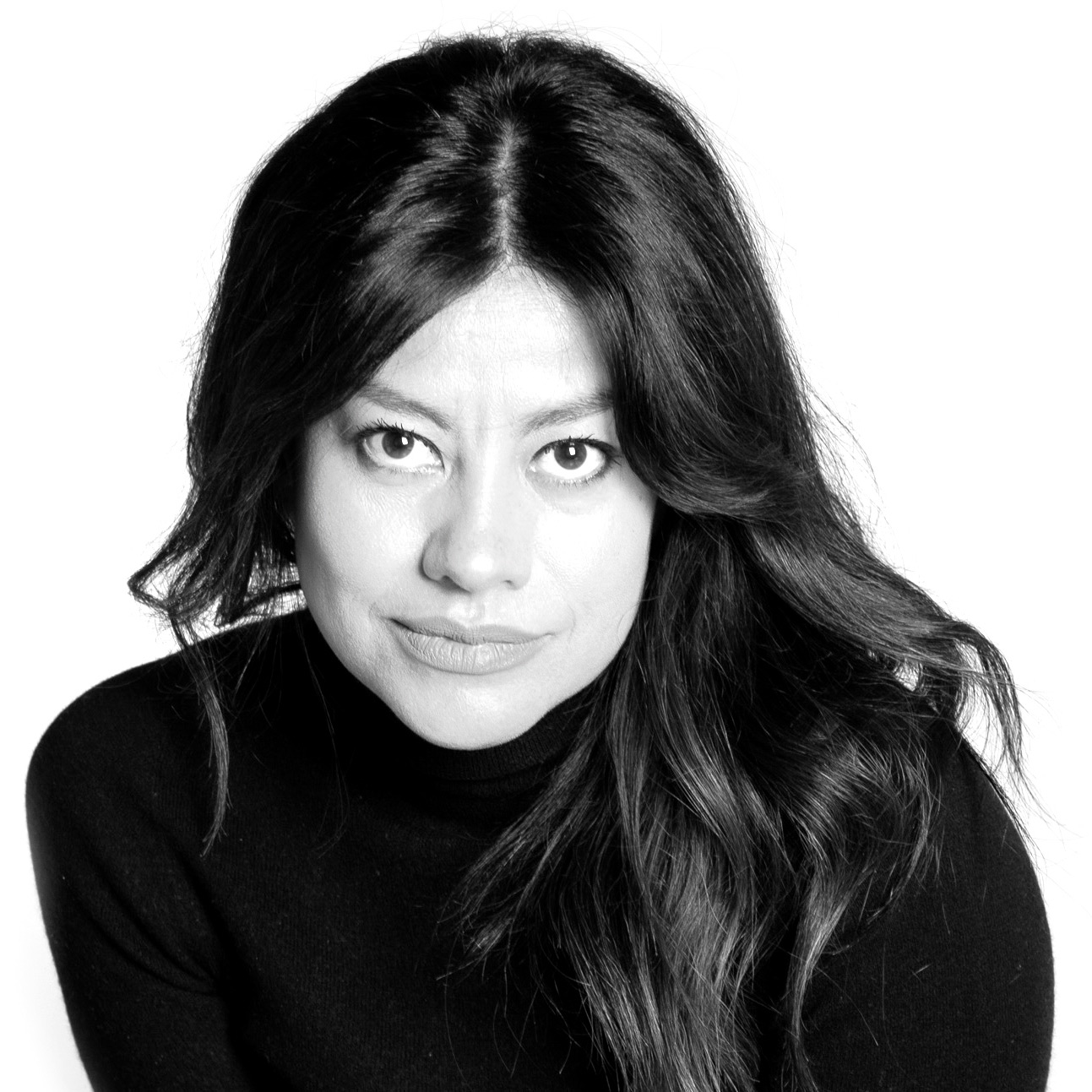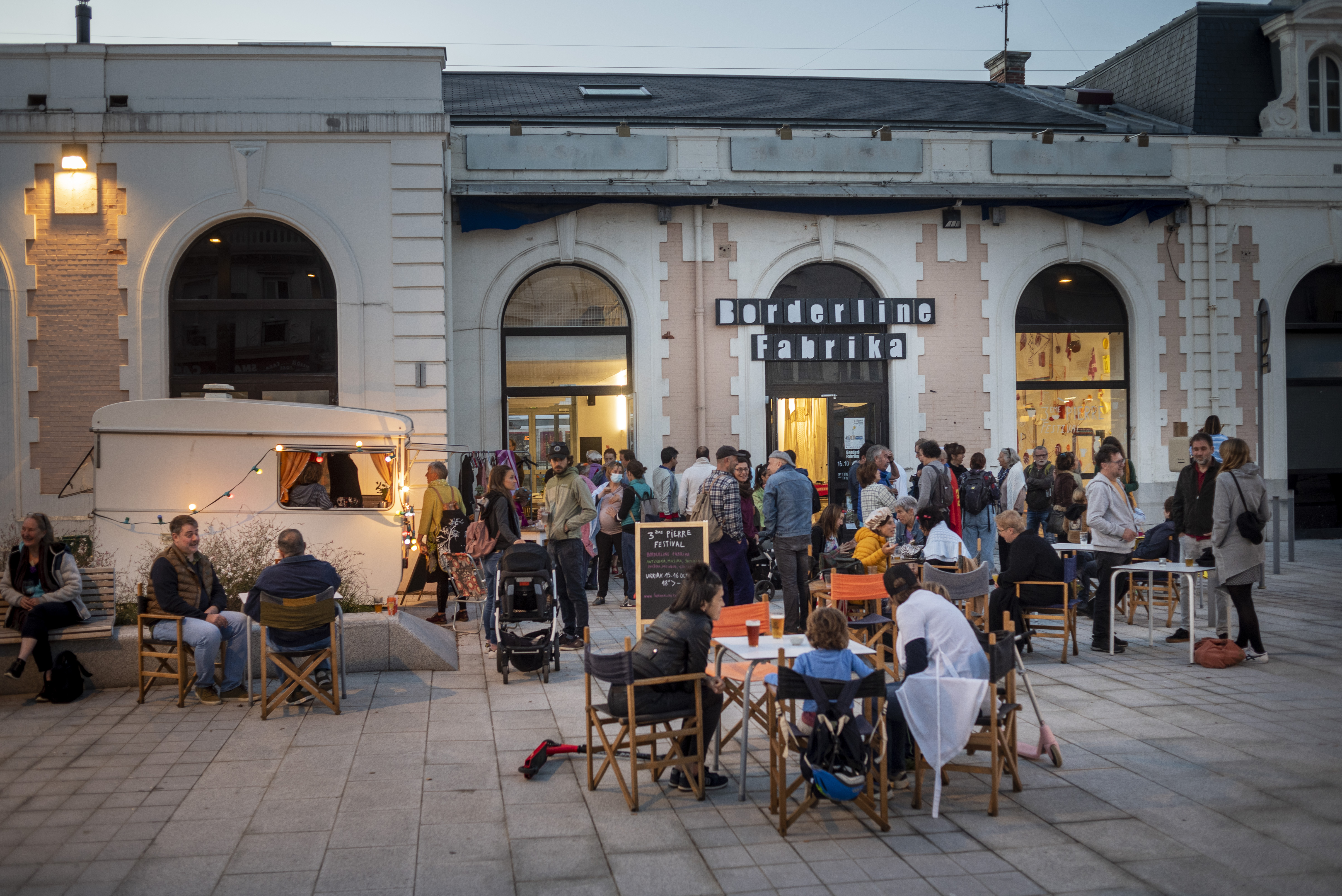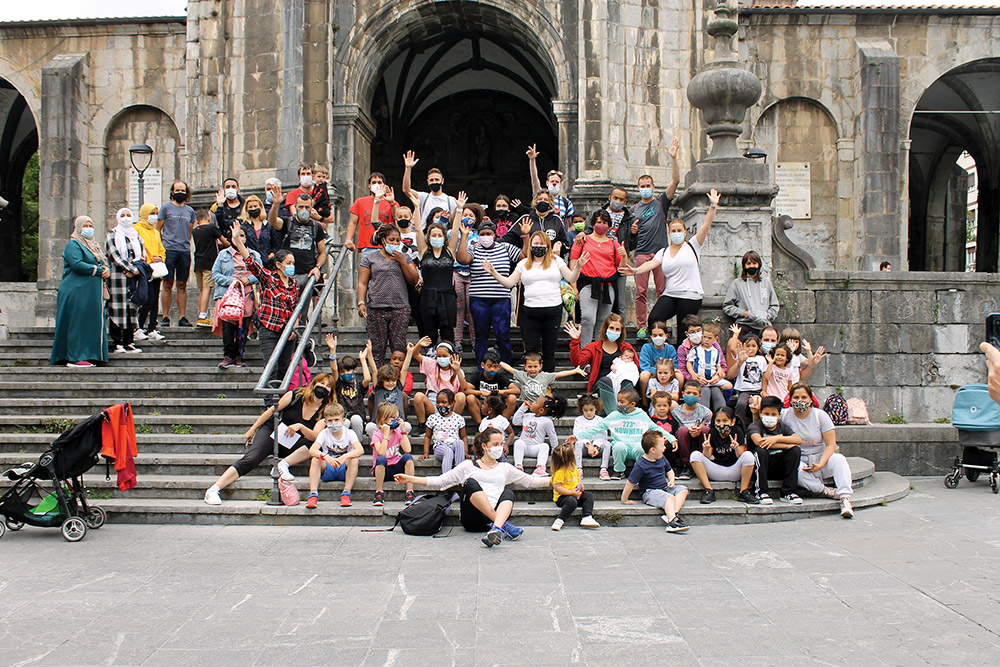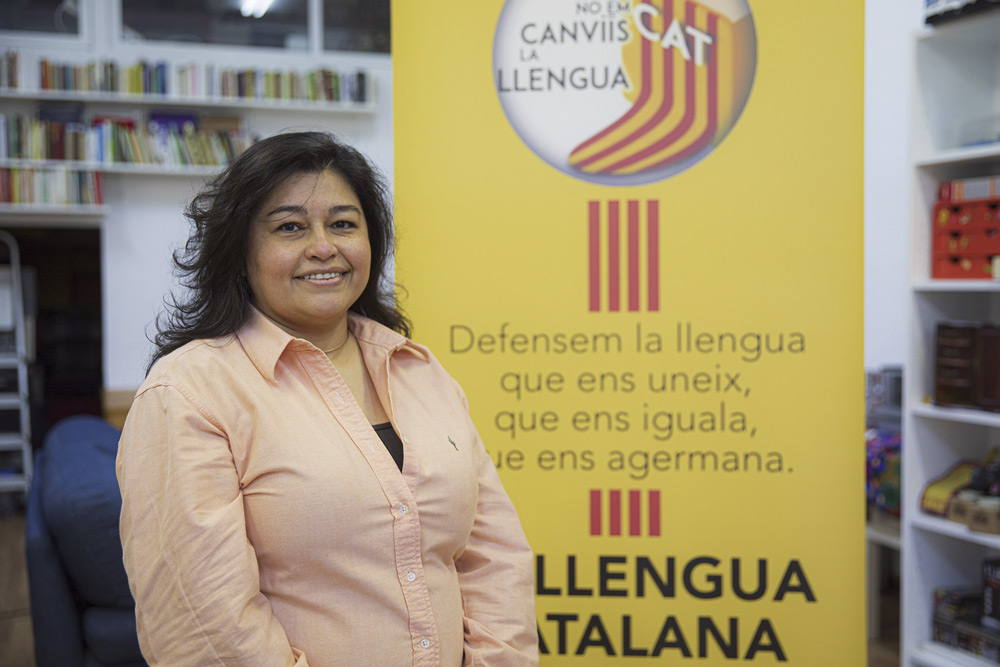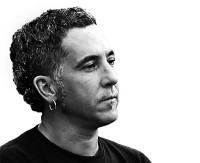Cohesion language to be Basque
- The Basque Country is made up of a population that speaks about a hundred languages more than the Basque, Spanish and French speakers. Last week the Meeting wanted to reflect on the place of the Basque language in linguistic diversity.
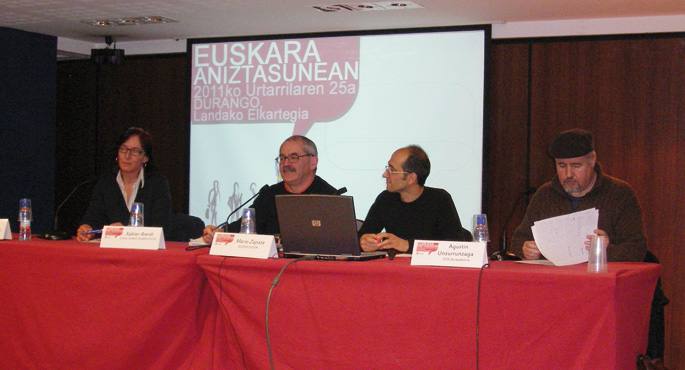
The meeting point, the Federation of Basque Associations, held the full-day conference entitled Euskara en diversity, on 25 January in Durango (Bizkaia). It reflected on how to manage the languages of newcomers and less newcomers, as well as those of the household. From Catalonia came Carme Junyent, president of the Grup d’Estudi de Llengües Amenaçades. The speakers of the Basque Country presented their research and practices, which culminated in a round table discussion with Petra Elser, Agustín Unzurrzaga and Mario Zapata (What should be done to bring citizens who live far from the Basque language (taking into account all its diversity) to the Basque language? ).
Let's start with the ending. Agustín Unzurrzaga, an experienced member of SOS Racism, took a raw x-ray of immigrants from outside the Spanish State: Immigrants come to do work, to have a decent life. “You’re there and we’re here,” there’s no conflict in everyday life, no relationship in particular. Not all of us have the same rights, they are irregular; people look at them with mistrust, and we have even come to hate. For Unzurrzaga, the immigrants of Gipuzkoa distinguish between two languages, one large and the other “that which is heard on television”. Then, when they take their children to school, then yes, then they meet with Basque. Unzurrzaga says that two-way integration is preferred, but in his opinion, the task is required of the socially weaker and he will make the effort he can.
Integration without English?
The sociologist Mario Zapata, a member of Unzurrzaga’s table, began to say that this reflection, that is, the place of the Basque language and the immigrants, is a reflection that has been coming for a long time and has an impression: how much it costs us to talk about it. Zapata asked quite a few short questions and answers, such as: Does migration have anything to do with language substitution processes? Yes, it’s not a one-time item, but it is, and that doesn’t mean we have to make immigrants feel guilty. One more question: Is immigration a primary problem? It's one of the priorities, but we've got bigger problems. He gave an example to explain this. Many immigrants are enrolled in Model A. The A-model itself exists.
The third question. Will we abandon the Basque language in the name of integration? During the previous migration period (coming from Spain) they felt integrated without learning Basque. Last question and answer from Zapata before speaking to Petra Elser: Did the first generation of the previous migration learn Basque? No, I don't. Even now, many of the first generation will not be Basque.
We bring here two brief reflections of the Basque-German Elser. One, we don’t have to tell the immigrant why he has to learn Basque. The other one is sent to the Basque language learning centre and is sent to government services for integration. The Basque language and dialect is responsible for this work.
Tell her about yours and ask her
Carme Junyent is often with the councilors of the Catalan municipalities. In a considerable number of municipalities they make an inventory of languages, that is, they collect the languages spoken by the inhabitants of that locality. The goal is not to do a work of figures, but to know where they have come from to these Catalan villages, what their home language is... in short, who they are. Asking the other who he is may create a two-way relationship. In this way we will learn that not all Pakistanis speak Urdu, and that some Moroccans speak Amazigh more than Arabic. Junyent told us of a strange symmetry: The Amazigh language is an elective subject in some Catalan schools – it is spoken by Tamazighs who, among other things, live under Moroccan rule – and they have also begun to teach it as a subject in school in Morocco. Some immigrants reflect on their less common language in the Catalan language. Junyent believes that adding identities is easier than removing them, if you remove some identity, sooner or later, it will come out somewhere. That the immigrant does not feel excluded. An example of this underestimation is, in the opinion of the Catalan expert, speaking in a dominant language to those who have come to us. We will do it with good will or paternalism in Spanish, but he will receive the following message: Catalan is not for you.” Junyent has
one thing in mind: he doesn’t know if this method will help us, but we don’t know any other system that has worked.
Another said this before the start of the day: today everyone will make their contribution, but no one has a solution.
Idoia Illarramendik (Emun) eta Joxean Amundarainek (Gipuzkoako Foru Aldundia) Bizilagun berriak eta euskara Gipuzkoan izeneko ikerlana aurkeztu zuten. Azken lau urtetan etorri diren hamazazpi laguni egin dizkiete elkarrizketak. Besteren artean, galdetu diete ea nola izan duten euskararen berri eta gehienek adierazi dute kalean egin dutela topo euskararekin.
Emuneko Olatz Irizarrek Hizkuntza Harrerarako Gidaliburu praktikoa ezagutarazi zuen. Katalunian kalean den liburuxka da eta Emunek euskaratu eta Euskal Herriratu du. Jardunaldietan izan zuen tokia harreraren gaiak, hau da, iritsi berritan etorkinari harrera nork egiten dion eta ea hizkuntzaren errealitateaz azalpenik ematen zaion. Irizarrek aipatu zuen egoera soziolinguistikoaz, kontzienteki, ohartarazi behar zaiola etorri berriari.
Topagunearen beraren Auzoko egitasmoaren berri izan genuen bukatzeko. Sei herritan egin den esperientzia pilotua da, euskaratik urrun daudenak hurbiltzeko asmoz. Euskaraz dakitenek eta ez dakitenek osatzen dute taldea eta kohesio hizkuntza euskara da. Hiru hilabeteko proba herri batzuetan beste batzuetan baino hobeto atera da. Orioko adibidea Arantxa Arrillaga dinamizatzaileak azaldu zigun eta kontatzeko modukoa iruditu zaigu. Hemen tokirik ez dugunez, hurrengo zenbakiren batean patxadaz landuko dugu.
International Migrants Day is celebrated on 18 December. Last year, an institutional event was held at the Alhóndiga in Bilbao in cooperation with the social partners and I was invited to participate. There I had an unbeatable opportunity to meet new creators and, above all, to... [+]
Dorleta Mikeok esango digu elkarrekin baina nahastu gabe bizi garela, ez dagoela bizikidetzarik bertakoen eta beste jatorri batzuetatik etorritako familien artean. Mikeo eta Lola Boluda Donostiako Egia auzoan, Aitor ikastolako jolastokian, abiaburua izan zuen egitasmoa garatzen... [+]
The current Basque society is culturally very diverse, people from different backgrounds live in the municipalities, and our centers have noticed this cultural diversity, as in recent courses the enrolment of foreign students has increased considerably. According to the latest... [+]
Rosario Palomino Liman (Peru) jaio zen eta 30 urtetik gora daramatza Bartzelonan bizitzen. Katalanez erraz egiten du, eta hala ere, katalan hiztunek gaztelaniaz egiten diote, kanpotar itxura duelako. Badaki errespetuaren izenean egiten diotela gaztelaniaz, baina bera... [+]
But the rain has come at the end: How to hold Euskal Herria so green, if not,” they say. And he really has it. But in our mother's country, the earth acquires a dark tile color when it rains, as if it wasn't very clear what it's made of: tiles by land or tiles. Green meadows are... [+]
Serious situation? To whom is the extremely serious situation addressed? Who cares? If the 2018 studies, studies and surveys show that the Basque lives behind his culture, who cares?
My friend told me what it's hard to get together, at dawn, when we were in Azpeitia Square... [+]











